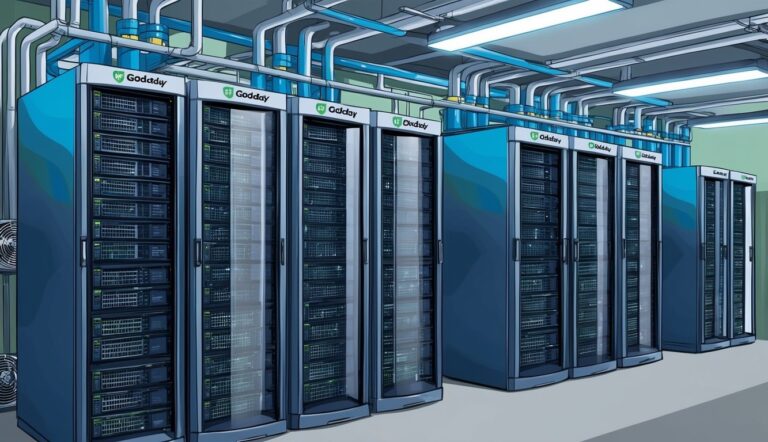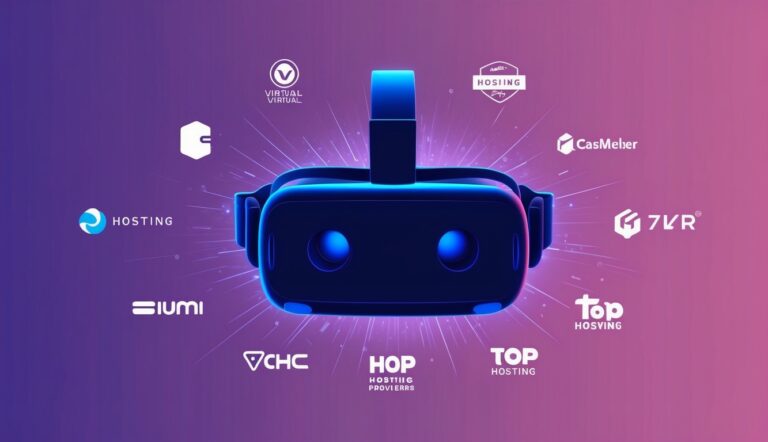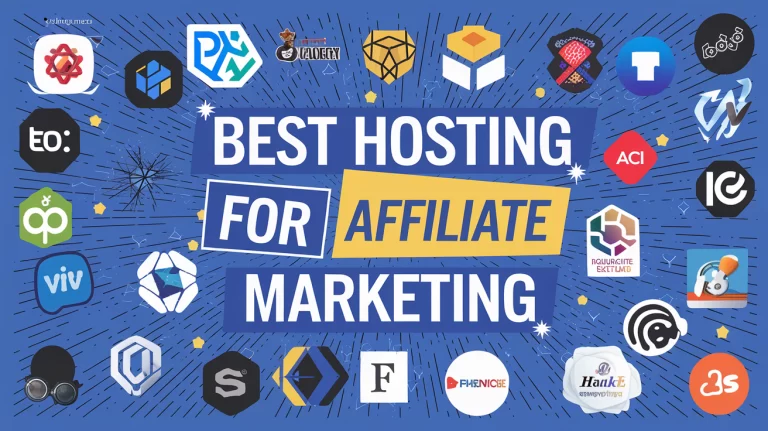How to Choose the Right Hosting Plan for My Game: A Guide to Server Performance and Cost

Picking the right game server hosting plan can feel overwhelming with all the options out there. You need to balance performance, cost, and features to create the perfect gaming experience for your players. Most games need at least 4GB RAM for smooth performance and dedicated resources to prevent lag.

Game server hosting providers offer different solutions based on your needs. You can choose between VPS hosting for smaller player bases, or dedicated game servers for resource-heavy games that need more power. Your choice affects everything from player lag to server stability.
Think about your player count and game type before deciding. Games with complex mods or large maps need more resources than simple vanilla versions. Your hosting plan selection should match both your current needs and leave room for growth.
Understanding Game Hosting Requirements
Choosing the right hardware specs for your game server directly impacts player experience and server stability. Your hosting plan needs the right balance of processing power, memory, and storage to keep everything running smoothly.
Game Requirements Analysis
The first step is checking your game’s specific hosting requirements. Most games list minimum and recommended specs for server hosting.
Popular games like Minecraft need at least 2GB RAM for 10 players, while ARK requires 4GB minimum. You’ll want to add 30% extra capacity above the minimum specs for optimal performance.
Make sure to check these key specs for your game:
- Minimum RAM and CPU requirements
- Player slot limitations
- Operating system compatibility
- Required ports and networking settings
Determining the Role of RAM and CPU
Your server performance depends heavily on RAM and CPU power. RAM handles active player data and game state information.
For CPU selection:
- Single-thread performance matters most for game logic
- Pick higher clock speeds over core count
- Allow 1 CPU thread per 4-5 players
For RAM allocation:
- Base amount: 2GB for the OS
- Add 100MB per player slot
- Extra 1GB for mod support
Importance of Storage Space for Game Files
Fast SSD storage reduces load times and improves map changes. Gaming servers need quick access to game files, player data, and world saves.
Calculate your storage needs:
- Base game installation
- World/map files (often 2-5GB each)
- Mod collection size
- Future updates and expansions
Use NVMe SSDs when possible for best performance. Plan for 20% extra space beyond your initial needs to handle updates and temporary files.
Evaluate Hosting Plan Features
Finding the perfect game hosting plan means looking closely at the technical specs, tools, and features that make your game server run smoothly and securely. The right combination of hardware power, management tools, and security measures will ensure your players get the best possible gaming experience.
Comparing Hardware Specifications
You want powerful hardware that can handle your game without breaking a sweat. RAM is crucial – most modern games need at least 4GB per server instance to run smoothly. CPU power matters too, especially for physics calculations and AI.
Look for hosts offering dedicated game server plans with these specs:
- CPU: minimum 3.5GHz clock speed
- RAM: 4GB-16GB depending on player count
- Storage: SSD storage for faster loading times
- Network: Low latency connections with DDoS protection
Pay attention to the CPU type – newer generation processors will give you better performance per core. Multi-threading support is essential for resource-heavy games.
Assessing Server Management Tools
A user-friendly control panel makes managing your server much easier. You’ll want these key features:
- One-click game installations
- Easy server restarts and updates
- Real-time performance monitoring
- Automated backup systems
Look for providers offering custom control panels designed specifically for gaming. These often include game-specific tools that make configuration much simpler.
File management should be straightforward with FTP access and a web-based file manager. Bonus points if they offer command-line access for advanced users.
Customization Options and Mod Support
Game server customization is essential for creating unique experiences. Your hosting provider should support:
- Full FTP Access: Upload custom files and mods
- Configuration File Editing: Change game rules and settings
- Plugin Support: Add extra features to your server
- Custom Startup Parameters: Fine-tune server performance
Make sure the provider allows you to install and manage mods easily. Some hosts offer mod installers right from the control panel.
Exploring Security Features
Security keeps your server and players safe from attacks and unauthorized access. Key security features to look for:
- DDoS Protection: Prevents server overload from attacks
- Regular Backups: Protects your data and configurations
- SSL Certificates: Secures admin panel access
- IP Blocking: Keeps unwanted visitors out
- Firewall Rules: Controls incoming connections
Advanced security features might include automatic malware scanning and real-time threat detection. Check if the provider offers automatic updates to patch security vulnerabilities quickly.
Performance and Reliability
Strong performance metrics and reliable server infrastructure form the foundation of an enjoyable gaming experience. Your choice of hosting plan needs to meet specific technical requirements to keep players happy and engaged.
Server Location and Ping Impact
Server location choices directly affect your gaming experience. When you pick a server close to your player base, you’ll see lower ping times and smoother gameplay.
For the best results, look for providers with data centers in multiple regions. You want ping times under 100ms – anything higher will create noticeable lag.
Test ping times from different player locations before committing to a host. Many providers offer a free trial period for this purpose.
Uptime Guarantees and Server Stability
The best hosting providers offer 99.9% uptime guarantees. This means your server stays online reliably, with minimal downtime.
Check the provider’s compensation policy for downtime. Some offer automatic credits when they fail to meet uptime promises.
Look for hosts using enterprise-grade hardware with:
- SSD storage
- Latest CPU generations
- Sufficient RAM allocation
- Redundant power systems
DDoS Protection Measures
DDoS protection is essential for keeping your game server safe from attacks. You need automatic mitigation systems that kick in without manual intervention.
Key protection features to look for:
- Layer 3/4 DDoS mitigation
- Traffic filtering
- Anti-spoofing measures
- Network monitoring
Most quality providers include basic DDoS protection free. Consider paying extra for advanced protection if you’re running a popular server.
Make sure to check the maximum mitigation capacity. You want at least 10 Gbps of protection for smaller servers, and 100+ Gbps for larger communities.
Gaming Community and Support
Quality support and a vibrant gaming community are crucial elements that can make or break your game server hosting experience. Access to expert help and connecting with fellow players will maximize your server’s success.
Customer Support Options
Most reliable game server hosts offer multiple ways to get help. You’ll want 24/7 support through live chat, email tickets, and phone options. Look for providers with technical staff who actually play the games they support.
Response times matter a lot. The best hosts typically respond within 15-30 minutes for urgent issues. You don’t want to wait hours when your server crashes during peak gaming time.
Key support features to look for:
- Live chat with instant responses
- Detailed knowledge base articles
- Discord or community forums
- Ticket tracking system
- Emergency server recovery assistance
Engaging with Gaming Communities
Building a thriving player base requires active community management. Established hosting providers give you tools to grow and manage your gaming community.
Community features you’ll need:
- Discord integration
- Server announcement systems
- Player management tools
- Ban/moderation capabilities
Join hosting provider forums to connect with other server owners. You can share tips, solve problems, and even coordinate events between servers.
Look for hosts that organize community events and tournaments. These activities help attract new players and keep existing ones engaged.
Scalability and Growth Potential
A game hosting plan needs room to grow as your player base expands. Your choice today affects your ability to handle more players and better performance tomorrow.
Server Scalability Features
Cloud scalability lets you adjust resources instantly as your needs change. You’ll want auto-scaling capabilities that can add more CPU power and RAM during peak playing times.
Your hosting plan should offer flexible player slot options. Look for providers that let you start small and upgrade smoothly without downtime.
Key features to check for:
- Automated resource scaling
- CPU priority settings
- Memory allocation controls
- Network bandwidth adjustment
- Quick server replication
Planning for Multiplayer Expansion
Selecting the right virtual machine is crucial for multiplayer growth. You need a plan that can handle more players without lag or connection issues.
Start by estimating your peak concurrent players. Add 30-40% extra capacity for unexpected player spikes.
Consider these multiplayer scaling factors:
- Geographic server distribution
- Connection quality requirements
- Player interaction intensity
- Data storage needs
- Backup server availability
Test your setup with staged player increases. This helps identify bottlenecks before they become real problems.
The Hosting Provider Landscape
Game hosting providers come in many shapes and sizes, with specialized features and pricing models designed to match different gaming needs.
Popular Game Server Hosting Providers
Host Havoc and Nitrado rank among the top choices for gamers seeking reliable server hosting. These providers offer instant setup and user-friendly control panels that make managing your server a breeze.
Shockbyte and Apex Hosting excel at Minecraft server hosting, with one-click mod installations and automated backups.
GameServers.com stands out with its global network of data centers, giving you low-latency connections for players worldwide.
Key Features to Look For:
- 24/7 technical support
- DDoS protection
- Automated backups
- Custom control panels
- Mod support
- Instant deployment
Specialized Services and Offerings
Virtual Private Servers (VPS) from providers like OVHcloud and Vultr give you complete control over your gaming environment. You’ll get root access and the freedom to install any game server software you want.
Cloud giants like Google Cloud offer scalable solutions perfect for larger gaming communities. These platforms let you adjust resources on demand.
Premium Features:
- Custom server configurations
- Dedicated IP addresses
- High-performance SSDs
- Unlimited bandwidth options
- Advanced server monitoring tools
Some providers offer specialized game panels designed for specific games, making setup and management incredibly straightforward.
Pricing and Payment Flexibility
Money matters when choosing a game hosting plan. You need to look at both short-term costs and long-term savings. Payment flexibility can make or break your choice.
Understanding Flexible Pricing Models
Month-to-month hosting plans give you freedom to adjust as your needs change. You won’t be locked into long contracts when you’re just starting out.
Common Payment Options:
- Credit/debit cards
- PayPal
- Bank transfers
- Cryptocurrency (on some providers)
Many providers offer pay-as-you-go pricing based on your actual resource usage. This means you only pay for what you actually need.
Looking at Long-Term Cost Effectiveness
Longer hosting commitments usually mean bigger savings. You might pay $15/month on a monthly plan, but only $8/month if you pay annually.
Cost Saving Tips:
- Look for introductory discounts
- Compare bandwidth allowances
- Check for hidden fees
- Consider resource scalability costs
Dedicated hosting plans cost more but offer better performance for popular games with high traffic.
Refund Policies and Satisfaction Guarantees
Never commit without checking the refund policy first. Most quality providers offer a 30-day money-back guarantee.
What to Check:
- Length of refund period
- Any excluded fees
- Cancellation process
- Pro-rated refund details
Choosing a reliable provider with clear refund terms protects your investment. Make sure to read the terms carefully before signing up.
Remember to test your server during the refund period to ensure it meets your performance needs.
Additional Considerations
Game server hosting requires careful attention to several critical features beyond just performance and pricing. Let’s look at what else you need to keep in mind when selecting your perfect hosting solution.
Backup and Data Protection Services
Reliable server hosting needs robust backup systems to protect your valuable game data. You’ll want automated daily backups that run without your intervention.
Make sure your provider offers easy restoration options. You should be able to recover your data with just a few clicks.
Look for providers that store backups in separate physical locations. This protects against hardware failures or datacenter issues.
Ease of Use and Setup
Instant server setup with one-click installation saves you tons of time. A good control panel makes managing your server simple.
Your hosting provider should offer a custom game panel with an intuitive interface. You want clear navigation and easy access to important settings.
No one likes wrestling with complicated configurations. Look for providers that handle the technical setup so you can focus on managing your game.
Hosting Support for Developers
Developer-friendly features like FTP access and command-line tools give you more control. For example, you can quickly access configuration files and server logs.
Good hosting providers offer API access for custom integrations. This lets you automate server management tasks.
Essential developer tools include:
- SSH access
- MySQL database support
- Plugin installation systems
- Mod management tools
Ensure you’re not left hanging when issues arise with response times under 30 minutes for technical support.





